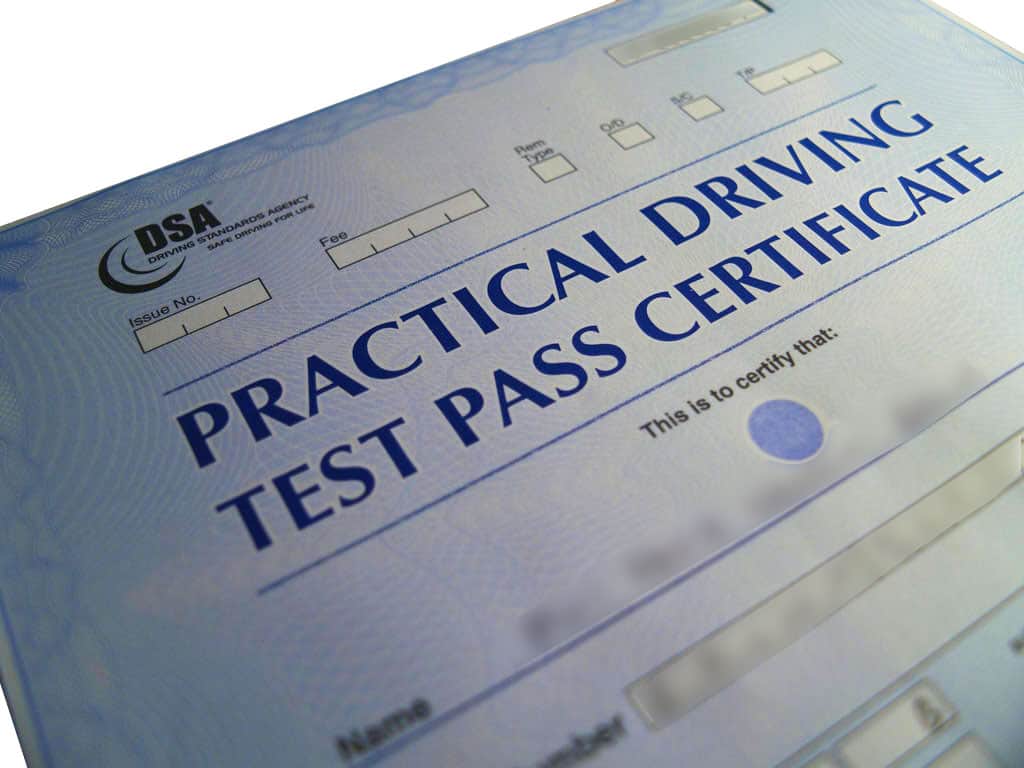UK practical certificate
Outline uk certificate
| Heading uk certificate | Sub-headings |
|---|---|
| Introduction UK certificate | Importance of Practical Certification |
| What is a UK Practical Certificate? | Definition and Overview |
| Benefits of a UK Practical Certificate | Career Advancement, Skill Enhancement |
| Types of UK Practical Certificates | Industry-Specific Certificates, General Skills Certificates |
| How to Choose the Right Certificate | Evaluating Your Career Goals, Researching Course Providers |
| Top Institutions Offering Practical Certificates in the UK | Universities, Online Platforms, Professional Organizations |
| Popular UK Practical Certification Courses | IT and Computing, Healthcare, Business Management, Engineering |
| Steps to Obtain a UK Practical Certificate | Eligibility Criteria, Application Process, Course Completion |
| Costs and Funding Options | Tuition Fees, Scholarships, Employer Sponsorships |
| Online vs. On-campus Certification | Pros and Cons of Each Mode |
| Real-life Applications of UK Practical Certificates | Success Stories, Case Studies |
| Certification and Employability | Impact on Job Prospects, Employer Perceptions |
| Practical Certificates and Continuing Professional Development (CPD) | CPD Requirements, Integration with Practical Certificates |
| How Practical Certificates Enhance Skills | Hands-on Training, Knowledge Application |
| Challenges in Obtaining Practical Certificates | Common Obstacles, Solutions |
| The Future of Practical Certification in the UK | Emerging Trends, Technological Advancements |
| Government and Industry Support for Practical Certification | Initiatives, Partnerships |
| Testimonials from Certificate Holders | Personal Experiences, Career Impacts |
| Comparing UK Practical Certificates with Other Qualifications | Academic Degrees, Professional Qualifications |
| Industry Demand for Practical Certificates | Key Sectors, Job Market Analysis |
| Renewal and Maintenance of Practical Certificates | Recertification Processes, Lifelong Learning |
| Tips for Success in Practical Certification Courses | Study Strategies, Time Management |
| Common Myths About Practical Certificates | Debunking Misconceptions |
| FAQs | Answers to Common Questions |
| Conclusion | Recap of Key Points, Final Thoughts |

UK Practical Certificate: The Gateway to Skill Enhancement and Career Advancement
Obtaining a UK practical certificate is a significant step towards enhancing one’s professional skills and advancing their career. These certificates offer practical, hands-on training in various fields, making them highly valuable in today’s competitive job market. In this article, we will explore everything you need to know about UK practical certificates, including their benefits, types, how to choose the right one, and the top institutions offering these valuable credentials.
What is a UK Practical Certificate?
A UK practical certificate is a formal recognition of a person’s competency in a specific skill or field, gained through practical training and assessment. Unlike theoretical academic qualifications, practical certificates focus on hands-on experience and real-world applications, making them particularly appealing to employers looking for job-ready candidates.
Benefits of a UK Practical Certificate – UK certification courses
Career Advancement: One of the primary benefits of obtaining a UK practical certificate is the potential for career advancement. These certificates demonstrate a candidate’s practical abilities and commitment to professional development, making them more attractive to employers.
Skill Enhancement: Practical certificates provide targeted training in specific areas, allowing individuals to develop and refine their skills. This targeted approach ensures that learners gain practical, applicable knowledge that can be directly applied in their job roles.
Types of UK Practical Certificates
Industry-Specific Certificates: These certificates are tailored to specific industries, such as IT, healthcare, engineering, and business management. They provide specialized training that meets the unique requirements of these fields.
General Skills Certificates: These certificates focus on broad skill sets that are applicable across various industries, such as project management, leadership, and communication. They are ideal for individuals looking to enhance their general professional competencies.
How to Choose the Right Certificate
Choosing the right UK practical certificate involves evaluating your career goals and researching course providers. Consider the following factors:
Evaluating Your Career Goals: Determine what skills you need to advance in your career and choose a certificate that aligns with these goals.
Researching Course Providers: Look for reputable institutions that offer high-quality practical training. Consider factors such as course content, duration, cost, and the provider’s reputation.
Top Institutions Offering Practical Certificates in the UK– practical training UK
Several institutions in the UK offer practical certificates, including universities, online platforms, and professional organizations. Some of the top providers include:

Universities: Many universities offer short courses and certificate programs that provide practical training in various fields.
Online Platforms: Online learning platforms such as Coursera, Udemy, and LinkedIn Learning offer a wide range of practical certificate courses that can be completed at your own pace.
Professional Organizations: Industry-specific organizations often provide certification programs that are recognized and valued by employers.
Popular UK Practical Certification Courses
Here are some popular fields where you can pursue a UK practical certificate:
IT and Computing: Courses in software development, cybersecurity, and data analysis are highly sought after due to the increasing demand for tech professionals.
Healthcare: Certificates in healthcare management, nursing, and medical coding provide practical skills needed in the growing healthcare sector.
Business Management: Practical training in project management, leadership, and digital marketing can significantly enhance career prospects in the business world.
Engineering: Certificates in mechanical, civil, and electrical engineering provide hands-on training that is crucial for success in these technical fields.
Steps to Obtain a UK Practical Certificate 1
Eligibility Criteria: Ensure you meet the eligibility requirements for the certificate program you are interested in. This may include educational qualifications and relevant work experience.
Application Process: Submit your application along with any required documentation. Some programs may require you to pass an entrance exam or interview.
Course Completion: Successfully complete the required coursework and assessments to earn your certificate.
Costs and Funding Options
Tuition Fees: The cost of practical certificate programs can vary widely depending on the provider and the course’s length and content.
Scholarships: Look for scholarship opportunities that can help reduce the financial burden. Many institutions offer scholarships based on merit or financial need.
Employer Sponsorships: Some employers may sponsor employees to complete practical certificate programs, especially if the skills gained are relevant to their job roles.
Online vs. On-campus Certification
Pros and Cons of Each Mode:
Online Certification: Offers flexibility and convenience, allowing you to study at your own pace and from anywhere. However, it may lack the hands-on experience provided by on-campus programs.
On-campus Certification: Provides a more immersive learning experience with direct access to instructors and facilities. However, it requires a significant time commitment and may not be feasible for everyone.
Real-life Applications of UK Practical Certificates
Success Stories: Many individuals have successfully leveraged their practical certificates to advance their careers. For example, a project manager who completed a practical certificate in project management was able to secure a promotion and lead larger projects.
Case Studies: Companies that have invested in practical certification programs for their employees have seen significant improvements in productivity and job satisfaction.
Certification and Employability
Impact on Job Prospects: Practical certificates can significantly enhance your job prospects by demonstrating your practical skills and commitment to professional development.
Employer Perceptions: Employers often view practical certificates as a testament to a candidate’s ability to perform specific tasks and solve real-world problems.
Practical Certificates and Continuing Professional Development (CPD)
CPD Requirements: Many professions require ongoing CPD to maintain certification and stay up-to-date with industry developments.
Integration with Practical Certificates: Practical certificates can count towards CPD requirements, making them a valuable addition to your professional development plan.
How Practical Certificates Enhance Skills
Hands-on Training: Practical certificates provide hands-on training that allows you to apply theoretical knowledge in real-world scenarios.
Knowledge Application: The practical approach ensures that you gain skills that are directly applicable to your job, enhancing your ability to perform tasks efficiently and effectively.
Challenges in Obtaining Practical Certificates
Common Obstacles: Some common challenges include finding the time to study, managing the financial costs, and balancing work and personal commitments.
Solutions: To overcome these challenges, consider online courses that offer flexibility, seek financial aid or scholarships, and create a study schedule that fits your lifestyle.
The Future of Practical Certification in the UK
Emerging Trends: The demand for practical certification is expected to grow as employers increasingly value hands-on skills and practical experience.
Technological Advancements: Advances in technology, such as virtual reality and online simulations, are making practical training more accessible and effective.
Government and Industry Support for Practical Certification
Initiatives: The UK government and industry bodies are supporting practical certification through various initiatives aimed at enhancing workforce skills and employability.
Partnerships: Collaborations between educational institutions and industry organizations are helping to develop practical certification programs that meet the needs of employers and learners.
Testimonials from Certificate Holders
Personal Experiences: Certificate holders often share positive experiences about how practical training has helped them achieve their career goals.
Career Impacts: Many individuals report significant career advancements and job satisfaction after completing practical certificate programs.
Comparing UK Practical Certificates with Other Qualifications
Academic Degrees: While academic degrees provide comprehensive theoretical knowledge, practical certificates focus on hands-on skills and real-world applications.
Professional Qualifications: Practical certificates complement professional qualifications by providing specialized training in specific areas.
Industry Demand for Practical Certificates
Key Sectors: Industries such as IT, healthcare, engineering, and business management have a high demand for practical certificates.
Job Market Analysis: Employers in these sectors are actively seeking candidates with practical skills and hands-on experience, making practical certificates highly valuable.
Renewal and Maintenance of Practical Certificates
Recertification Processes: Some practical certificates require periodic renewal to ensure that the holder’s skills remain up-to-date.
Lifelong Learning: Continuous professional development is essential to maintain and enhance the skills gained through practical certification.
Tips for Success in Practical Certification Courses
Study Strategies: Develop effective study habits, such as setting goals, creating a study schedule, and seeking support from peers and instructors.
Time Management: Balance your study time with work and personal commitments to ensure that you can complete the course successfully.
Common Myths About Practical Certificates
Debunking Misconceptions: Some common myths include the belief that practical certificates are not as valuable as academic degrees or that they are only for entry-level positions. In reality, practical certificates are highly respected and can lead to advanced career opportunities.
UK Practical Certificate
Obtaining a UK practical certificate is a strategic move for anyone looking to enhance their professional skills and advance their career. These certificates offer practical, hands-on training that is highly valued by employers and can significantly boost your job prospects. Whether you are looking to gain new skills, improve existing ones, or achieve career advancement, a UK practical certificate can provide the practical training and recognition you need to succeed.
FAQs
What is a UK practical certificate?
A UK practical certificate is a formal recognition of competency in a specific skill or field, gained through practical training and assessment.
How can a UK practical certificate benefit my career?
A practical certificate can enhance your skills, improve job prospects, and demonstrate your commitment to professional development, making you more attractive to employers.
What types of practical certificates are available in the UK?
There are industry-specific certificates tailored to fields like IT, healthcare, engineering, and business management, as well as general skills certificates that focus on broad competencies.
How do I choose the right practical certificate?
Evaluate your career goals, research reputable course providers, and consider factors such as course content, duration, cost, and the provider’s reputation.
Are online practical certificates as valuable as on-campus ones?
Both online and on-campus certificates have their advantages. Online certificates offer flexibility, while on-campus programs provide a more immersive learning experience.
What is the future of practical certification in the UK?
The demand for practical certification is expected to grow, driven by employer preferences for hands-on skills and advancements in technology that make practical training more accessible.
Conclusion
A UK practical certificate is a valuable credential that can enhance your professional skills and open up new career opportunities. By choosing the right certificate and investing in practical training, you can gain the hands-on experience needed to excel in your field. Whether you pursue an industry-specific certificate or a general skills program, the knowledge and competencies you acquire will be highly valued by employers and can lead to significant career advancements. Embrace the opportunity to enhance your skills and advance your career with a UK practical certificate.
Inbound and Outbound Links Suggestions
Inbound Links:
Outbound Links:
https://uk-official-document.com/uk-practical-certificate/

